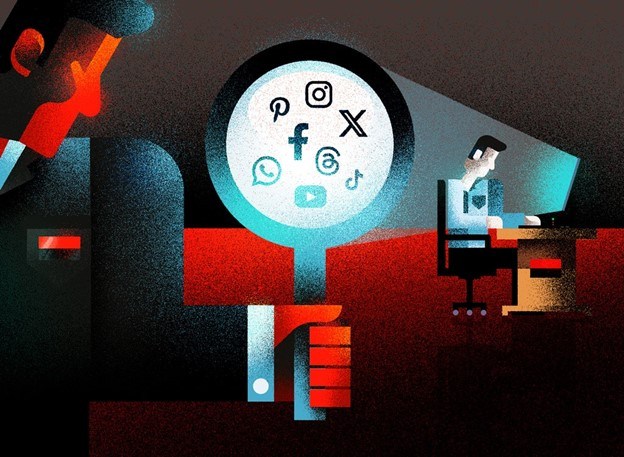In Nicaragua the surveillance has increased bigtime

Government workers are banned from talking about Sheynnis Palacios and celebrating her Miss Universe win, “people have even been fired for posting memes”
HAVANA TIMES – Enrique says he’s been having nightmares for several days. Most of the dreams involve police officers. He explains that “he is feeling very paranoid and afraid,” a sensation that, according to him, he shares with the majority of government employees due to the wave of dismissals, constant interrogations and imprisonments prescribed by the dictatorship of Daniel Ortega and Rosario Murillo. But added to that is a new form of control: social media.
“We knew they were watching us, but in the last few weeks they have started being more vigilant of our social media accounts. They monitor everything we do personally, and now also virtually,” says Enrique.
This young man, who works in an office of the Judiciary branch in Managua, says there are several people “who have been fired for posting something on social media that provokes [the regime’s] discomfort.”
Enrique describes the work environment as challenging because “you don’t know what you can and can’t say on social media.” Some workers have even stopped posting or have simply closed their accounts.
“But even doing that can provoke [their] ire. With these people, you never know,” he warns.
Even memes are banned
Since April 2018, the Ortega-Murillo regime has imposed a reign of terror on public employees. Workers raising their voices, demanding their rights, or criticizing the government is unthinkable. But social media, which was, for many, “an escape valve,” is now an increasingly dangerous terrain.
“In my case, I only had Facebook, but at the insistence of my bosses I had to create a Twitter [now X] account in 2018, because we were urged [to post there] in order to gain ground on social media at a time when the complaints of [human rights] violations were being reported by thousands of Nicaraguans,” Enrique explains.
Enrique recalls that one of his office colleagues was threatened during the COVID-19 pandemic for posting about taking precautions to avoid getting infected. In a meeting, they showed him his Facebook posts and accused him of being a “traitor.” He became so afraid that he left Nicaragua a few weeks later.
“They’ve fired people just for publishing memes,” says Enrique, who believes that the level of control the dictatorship is trying to impose “is crazy.”
Enrique also says that most of the hundreds of workers dismissed from the Judiciary had their personal phones confiscated. “We assume that they have been checking everything the workers had


